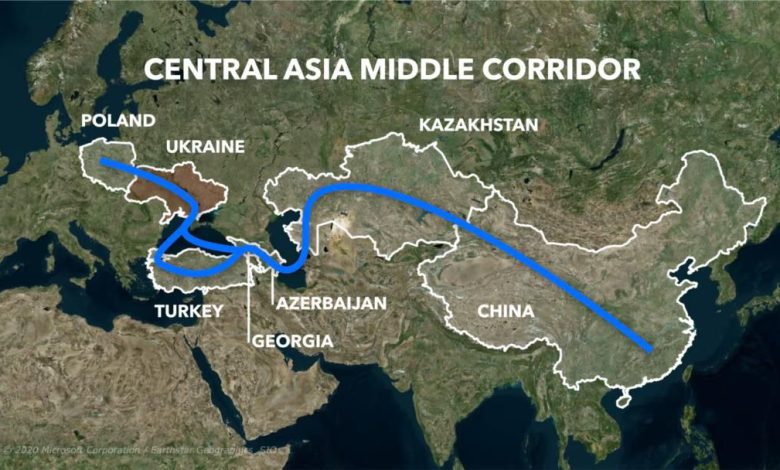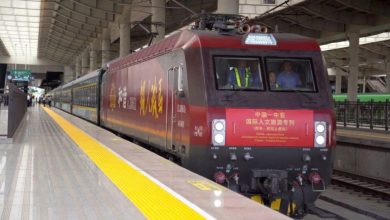Azerbaijan enhances European industrial supply chains through its strategic role in TITR

In a recent address to the Kazakh media, Henri Vantighem, the Ambassador of the Kingdom of Belgium in Kazakhstan, underscored the critical importance of Kazakhstan and Central Asia as partners in maintaining the industrial prowess of Europe. His remarks highlighted the strategic significance of the Trans-Caspian Corridor, also known as the Middle Corridor, in bolstering the supply chain of essential raw materials from Asia to Europe.
The Trans-Caspian Corridor is a pivotal route that facilitates the movement of goods from China and Central Asia to Europe via the Caspian Sea, Azerbaijan, and Georgia, eventually connecting with the European transport networks. This corridor offers a more direct and efficient path for the transportation of raw materials and goods, bypassing longer maritime routes and avoiding geopolitical bottlenecks in other regions.
Azerbaijan’s strategic geographical position as a bridge between Europe and Asia makes it an indispensable player in the success of the Trans-Caspian Corridor. With its well-developed infrastructure, including the Baku International Sea Trade Port and the Baku-Tbilisi-Kars railway, Azerbaijan serves as a crucial transit hub. The country has invested heavily in modernizing its transport and logistics infrastructure to accommodate the increasing flow of goods through this corridor.
For European industries, the Trans-Caspian Corridor offers a reliable and quicker alternative for sourcing critical raw materials from Central Asia. Ambassador Vantighem’s remarks reflect the broader European strategy to diversify supply chains and reduce dependency on a single region or route. By securing access to raw materials from Kazakhstan and Central Asia, European industries can maintain production levels, enhance competitiveness, and mitigate risks associated with supply chain disruptions.
Kazakhstan and other Central Asian countries stand to gain significantly from this collaboration. Investment from European entities can stimulate local industries, create jobs, and promote technological advancements. The influx of capital and knowledge exchange in logistics and other sectors can drive economic growth and development in the region.
Beyond the economic advantages, the development of the Trans-Caspian Corridor contributes to regional stability and peace. Enhanced connectivity fosters closer economic ties and interdependence among countries, reducing the likelihood of conflicts and encouraging cooperative relationships. The corridor also facilitates cultural and technological exchanges, further integrating Central Asia with the global economy.
Despite its potential, the Trans-Caspian Corridor faces challenges, including political complexities, regulatory hurdles, and the need for continuous infrastructure improvements. Cooperation among corridor countries is crucial to address these issues and ensure the smooth functioning of this trade route.
The prospects of the Trans-Caspian Corridor are promising. As global trade dynamics evolve and the demand for efficient and diversified supply chains grows, the importance of this corridor will only increase. Continued investment in infrastructure, along with collaborative efforts to streamline regulations and enhance security, will be key to realizing the full potential of the Trans-Caspian Corridor.
The speech by Ambassador Henri Vantighem highlights the strategic importance of the Trans-Caspian Corridor in maintaining Europe’s industrial capacity and fostering economic development in Central Asia. Azerbaijan’s pivotal role as a transit hub underscores the interconnectedness of global trade and the mutual benefits of enhanced connectivity. As Europe and Central Asia continue to deepen their economic ties, the Trans-Caspian Corridor will remain a vital link in the global supply chain, promoting peace, development, and prosperity for all involved.





